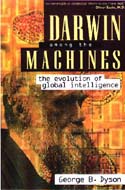Events to look at ‘Living in a Networked World’
 Mathematicians and computer scientists will explore the tangled issues raised by living in a world tied together by the Internet and World Wide Web during a series of events at Wake Forest University Jan. 13-27.
Mathematicians and computer scientists will explore the tangled issues raised by living in a world tied together by the Internet and World Wide Web during a series of events at Wake Forest University Jan. 13-27.
The series, “Living in a Networked World: Community, Security and Privacy,” will examine possible threats to the security and privacy of personal information, ways to protect this information, and other topics such as artificial intelligence and regulation of the Internet.
“From a practical point of view, we can learn where and to whom our personal information is accessible, and how we can keep it private and secure-with technical tools,” says Jennifer Burg, Wake Forest assistant professor of mathematics and computer science and organizer of the events. “From a more scientific point of view, the symposium will address issues of data encryption, network security protocols, and machine intelligence.”
“What are the possible threats to the security and privacy of our personal information, and what can we do to protect this information?” she asks. “How open and uncensored should information be on the Internet? What kind of machine intelligence is evolving out of the network of information?”
The symposium will begin with a discussion of the evolution of global intelligence, which will focus on the ideas presented in George Dyson’s 1997 book, “Darwin Among the Machines.” Wake Forest faculty, students and community members will participate in the free, public discussion of Dyson’s ideas at 11 a.m. Jan. 13 in Calloway Hall, Room 310.
George Dyson will present a lecture, “There’s Plenty of Room at the Top,” at 4 p.m. Jan. 18 in Benson University Center’s Pugh Auditorium. He will discuss the movement of computers toward large-scale, self-organizing systems. He will draw on material from his book, which examines the computer’s evolution and suggests links to the scientific writings of Charles Darwin.
A second discussion will address the question: “What does security and privacy mean to you?” Led by Wake Forest faculty, the free, public event will begin at 11 a.m. Jan. 20 in Calloway Hall, Room 310. The discussion will focus on the security of files on a computer network, access to email, computer encryption and computer “cookies.”
On Jan. 25, S. Brent Morris, senior mathematician at the National Security Agency, will present a lecture, “Classic Cryptanalysis: The Folger Manuscript,” in Benson University Center’s Pugh Auditorium at 3 p.m. Robert Folger, a 19th century New York physician, wrote a 33-page book in code. The talk, illustrated with 35mm slides, follows the step-by-step classical cryptanalysis used to crack the cipher.
Following Morris’s talk, a security software expo will be held outside Pugh Auditorium. Demonstrations will cover encryption systems, face recognition software, the PC “smart card,” fingerprint recognition software, handwriting recognition software, and computer-enhanced learning systems.
To conclude the series, the Wake Forest Debate Team will host an open debate on “Computer Security, Privacy and Censorship” on Jan. 27. Members of the debate team will tackle issues such as censorship on the Web, government regulation of the Web and the security of personal records. Audience members will have the opportunity to participate in the event, which begins at 3:30 p.m. in Carswell Hall, Room 111.
“Living in a Networked World” events are part of “Science and Technology: the Next Millennium,” a yearlong celebration of scientific inquiry in the coming millennium featuring events centered on science and technology topics such as computer security, women in science and the state of the environment.
All events are free and open to the public. For more information, call 336-758-5788 or visit the “Science and Technology” Web site at www.wfu.edu/yost.
Categories: Happening at Wake, Research & Discovery
Media Contact
Cheryl Walker
media@wfu.edu
336.758.5237



